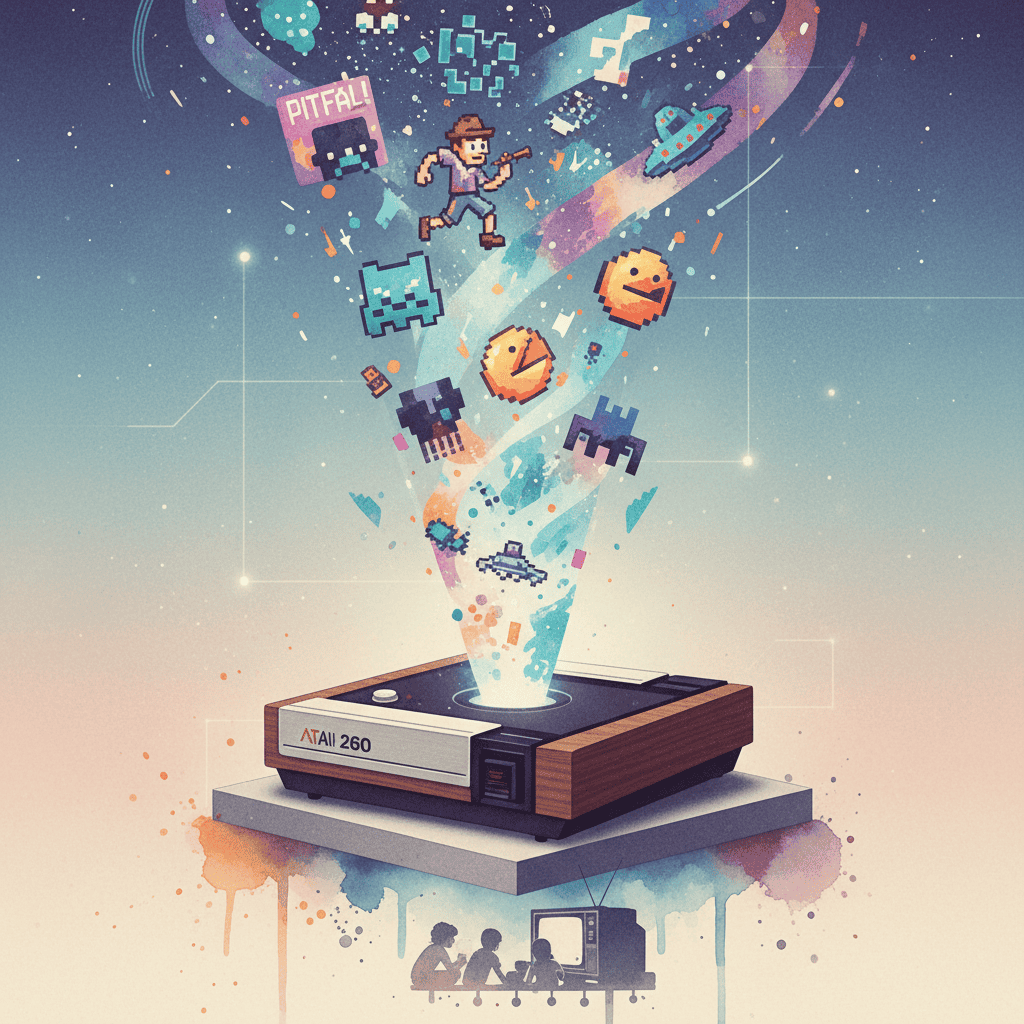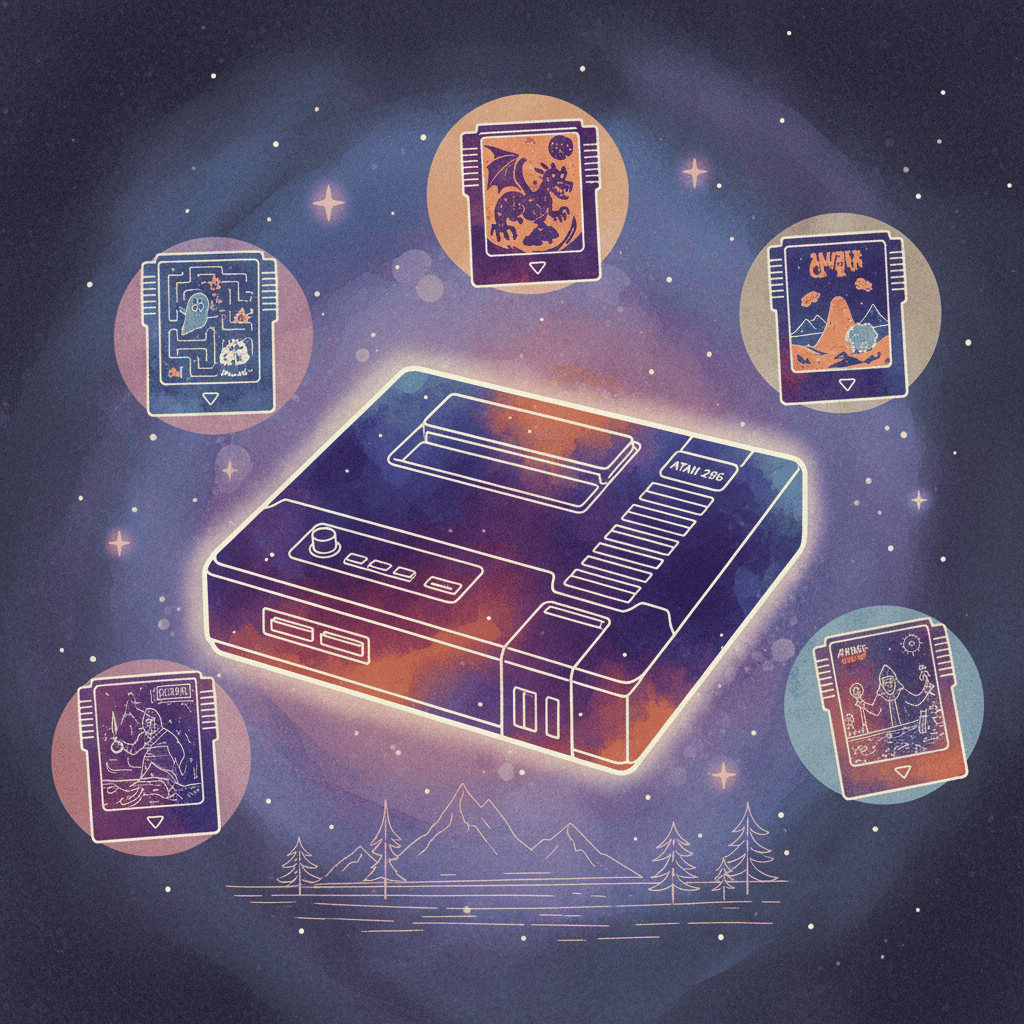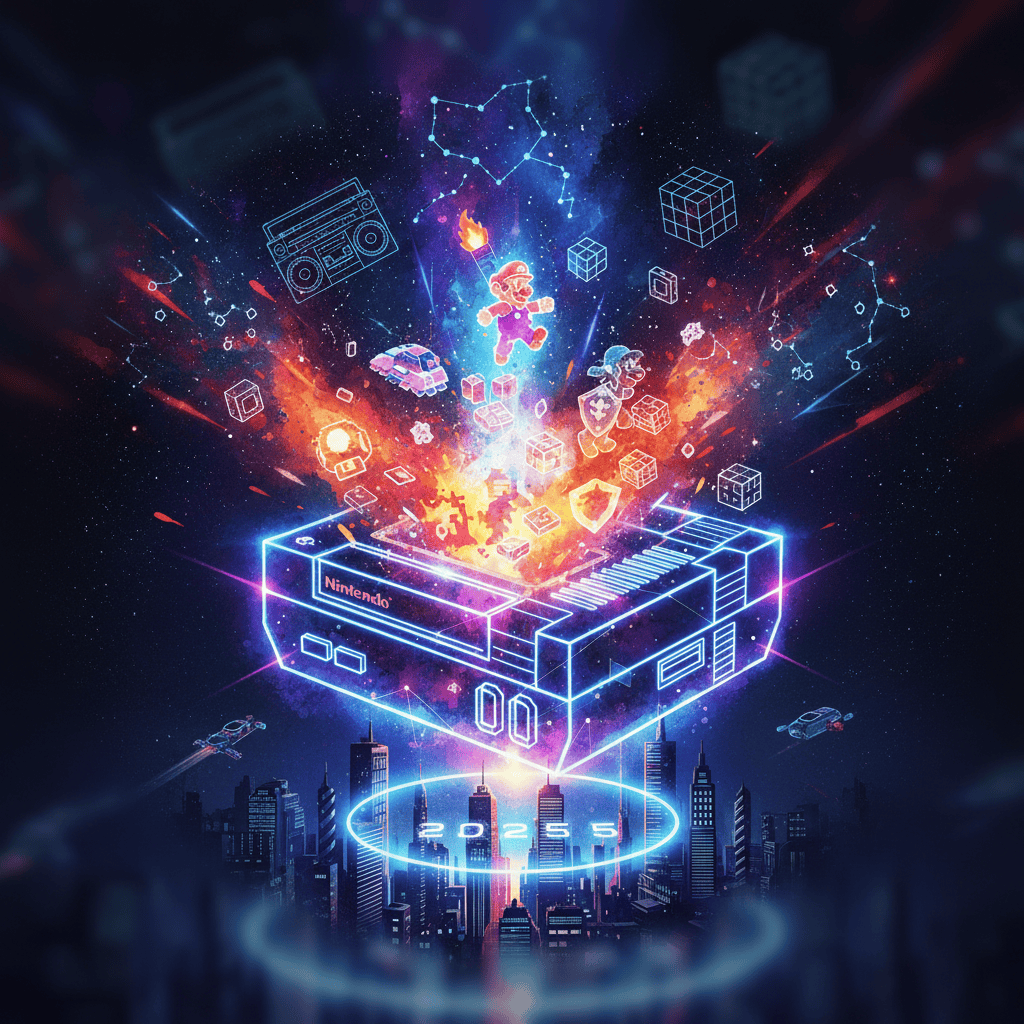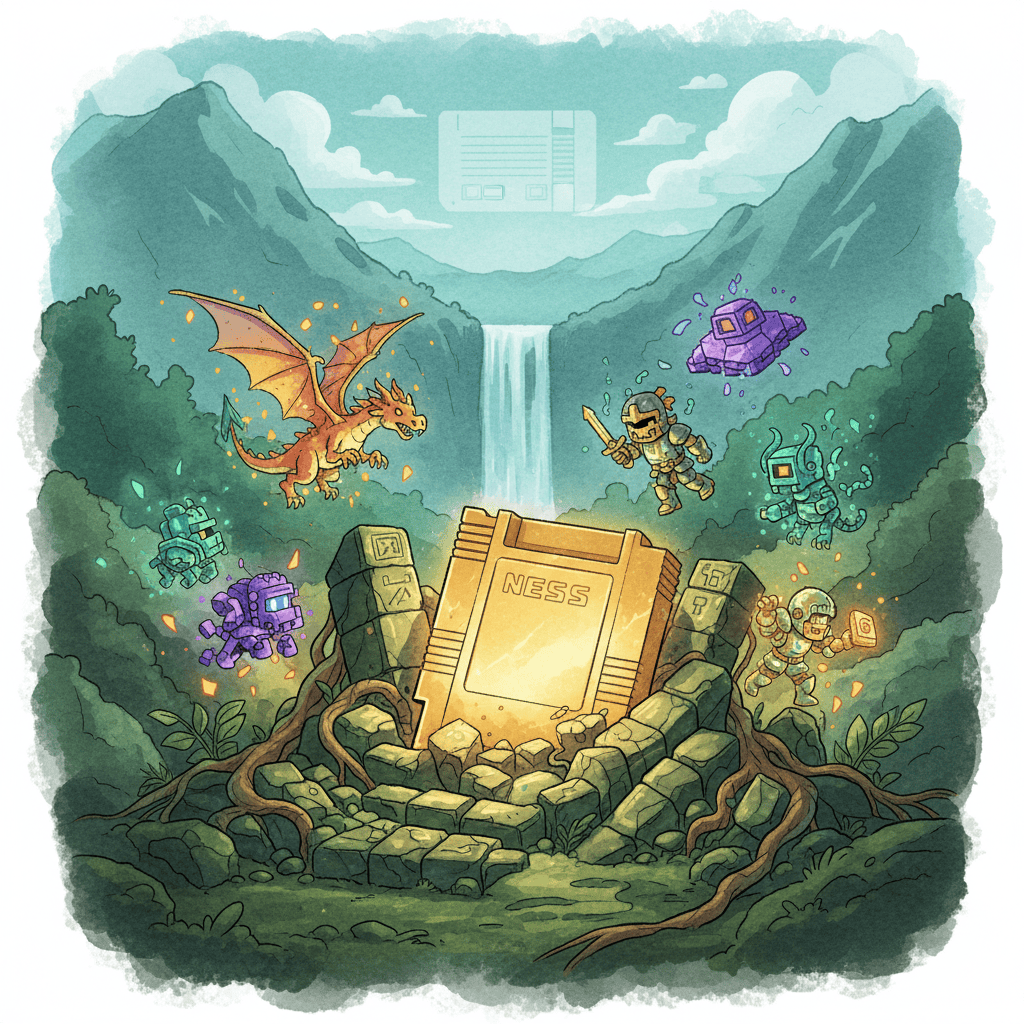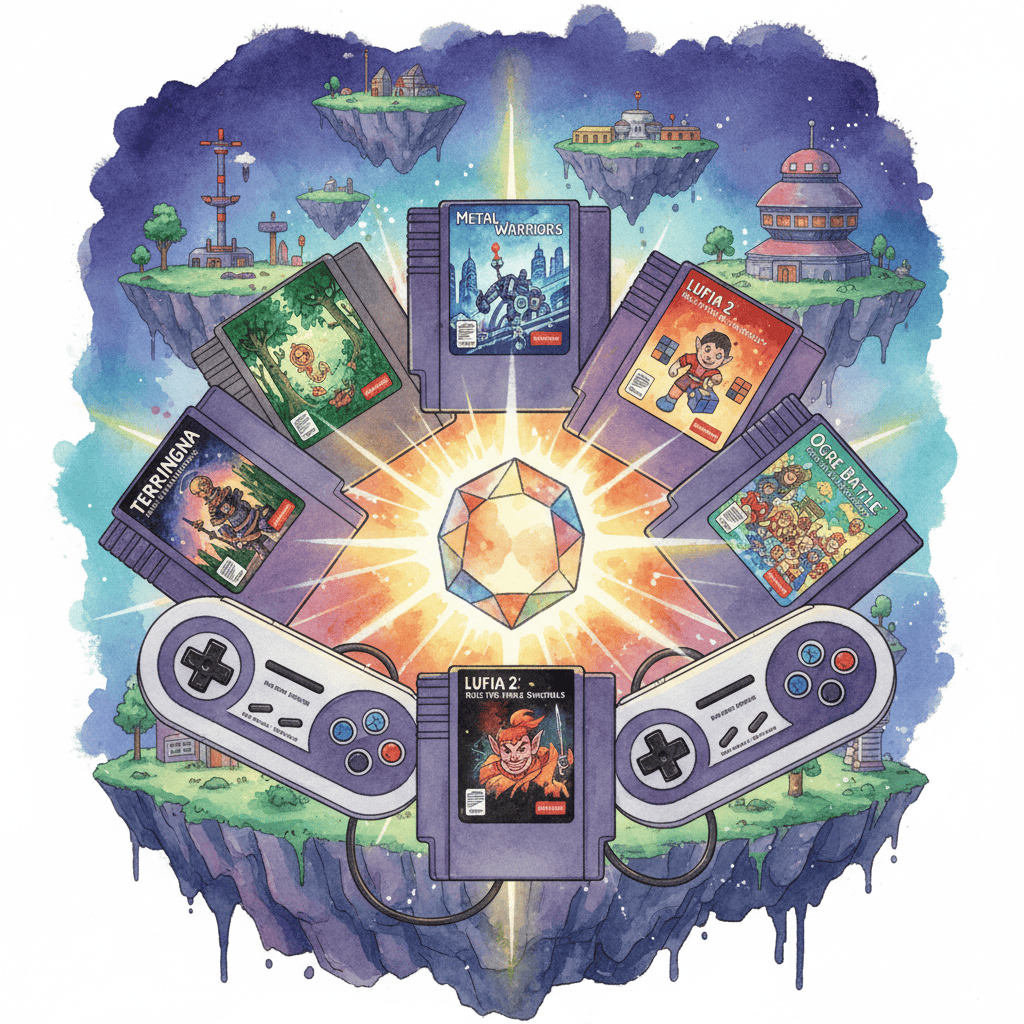So, you want to understand the Atari 2600? You’re not just looking at pixels and plastic; you’re diving into a pivotal moment in gaming history. This isn’t about simply listing titles; it’s about dissecting the games that shaped the industry, the joysticks that defined a generation, and the legacy that continues to resonate today. Let’s get started!
The 8-Bit Odyssey: Hardware and its Limitations
My first encounter with the Atari 2600? A blurry, pixelated mess of Combat on a friend’s basement TV. The graphics were… rudimentary, to put it mildly. But the raw, unadulterated fun? That was undeniable. The Atari 2600, released in 1977, wasn’t about photorealism. Its 128 bytes of RAM, limited color palette, and simple processor dictated a unique design philosophy: gameplay reigned supreme.

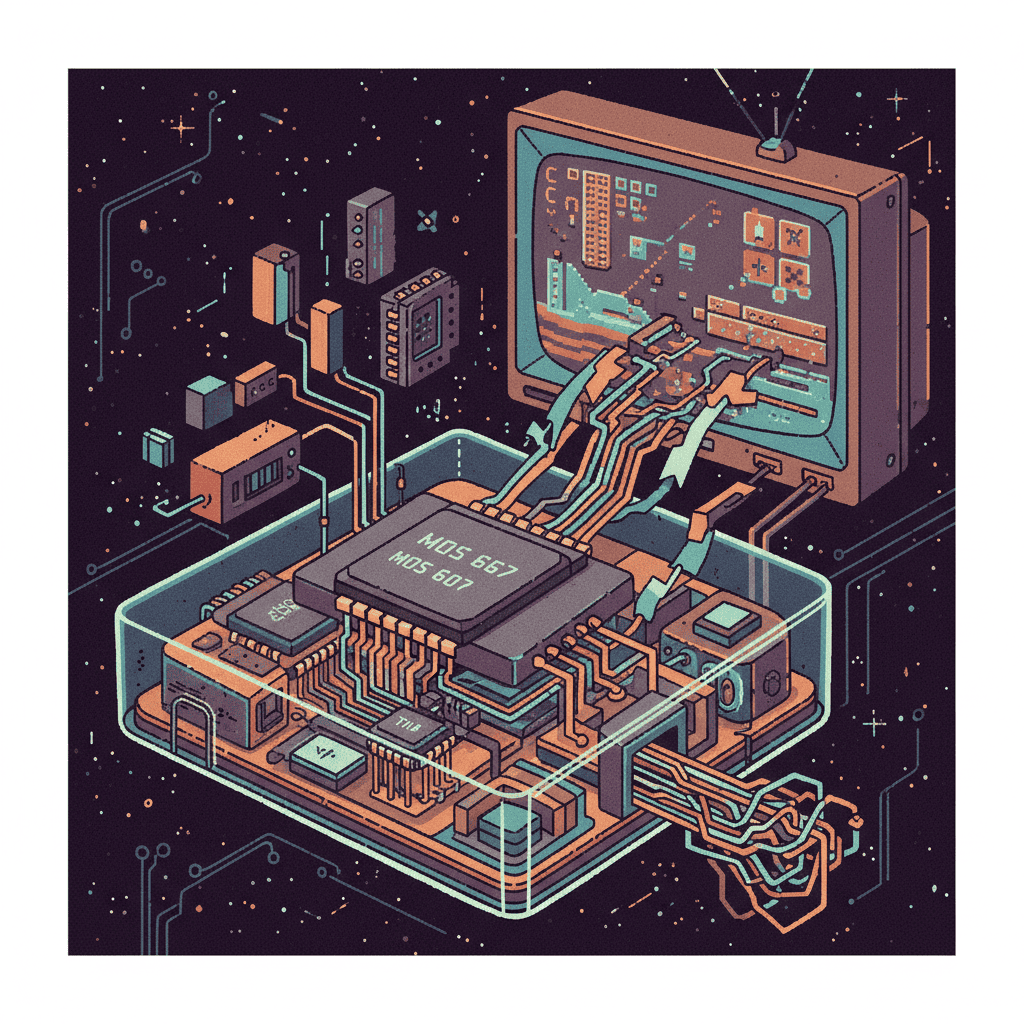
Developers had to be incredibly resourceful. They had to coax compelling experiences out of severely limited hardware. This forced innovation, pushing the boundaries of what was possible within those constraints. The result? Games that were often simple, yet profoundly engaging. Think about the elegance of Pong, the addictive simplicity of Breakout, the strategic depth hidden within Combat. These were far from technically impressive games, but they were brilliantly designed.
The Joystick’s Tale: Precision and Frustration
The Atari 2600’s iconic joystick—that clunky, slightly unreliable controller—became synonymous with an era. It was simple, and sometimes infuriatingly imprecise. But that imprecision, paradoxically, added to the challenge. Getting that perfect shot in Asteroids, or navigating the labyrinthine levels of Adventure, required a level of finesse, a learned dance between your hand and the rudimentary technology.
The Atari 2600’s limitations weren’t flaws; they were the crucible that forged a generation of innovative game design, leading to the creation of many Atari 2600 gems. It taught developers to prioritize gameplay and mechanics over visual fidelity, a lesson that resonates even in today’s AAA gaming world.
Genre Defining Classics: More Than Just Pixels
The Atari 2600 didn’t just have games; it birthed genres. It popularized space shooters (Asteroids, Galaxian), action-adventure (Adventure), and even introduced elements of sports simulation (Basketball, Football). Each title had its own unique flavor, shaped by those hardware limitations.
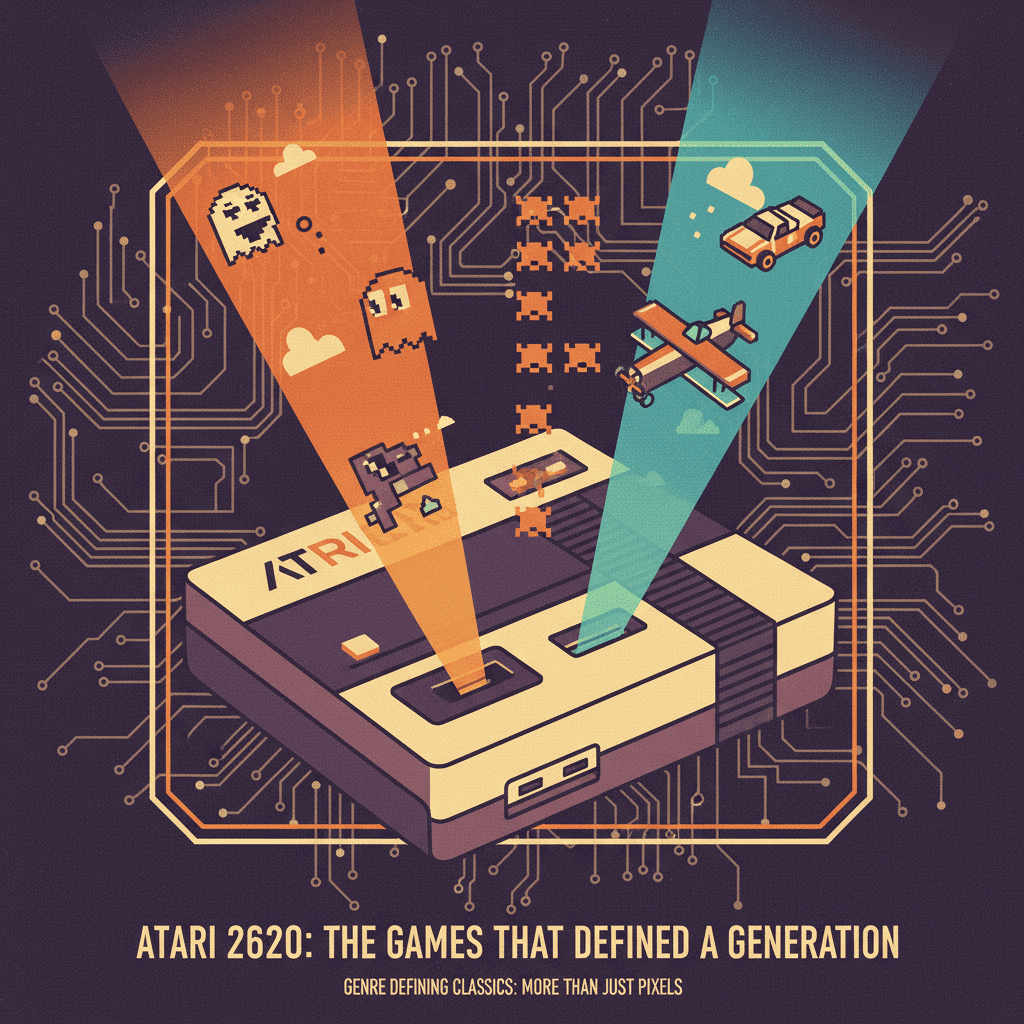
- Space Invaders: A port of the arcade classic, it proved that even with downgraded visuals, the core gameplay loop could still translate perfectly. The repetitive shooting, the relentless alien invasion, were still as compelling.
- Pitfall!: A groundbreaking platformer for its time, Pitfall! introduced a more complex, multi-stage experience. Navigating the treacherous terrain, avoiding crocodiles and pits, and collecting treasures, required skill and timing.
- Pac-Man: The port of the arcade classic, although not perfect, showed that the 2600 was more capable than many initially thought. The simple maze and chasing gameplay were easily translatable to the Atari console.
Atari 2600 Games: A Table of Notable Titles
| Game Title | Genre | Notable Features | Lasting Impact |
|---|---|---|---|
| Adventure | Action-Adventure | Open-world exploration, early RPG elements | Inspired countless future adventure games |
| Asteroids | Space Shooter | Simple yet addictive gameplay | A template for countless space shooters |
| Breakout | Arcade | Simple, yet challenging gameplay | Influence on puzzle and arcade genres. |
| Combat | Action | Two-player tank battles | Early example of competitive multiplayer |
| Pitfall! | Platformer | Challenging environment, treasure hunting | A foundational title in the platformer genre |
| River Raid | Action/Shooter | Scrolling landscape, shooting enemies | Precursor to endless runner game designs |
The Evolving Gamer: Appealing Across Generations
The beauty of the Atari 2600 lies in its appeal across different gaming generations.
For the Retro Veteran: It’s a nostalgic trip back to simpler times, a reminder of those late-night gaming sessions with friends. The experience was pure, unfiltered fun.
For the Modern Indie Fan: The limitations of the Atari 2600 forced a unique design philosophy. It teaches valuable lessons in minimalist design: how to create compelling experiences with limited resources. Many indie games today follow that same principle of simple yet effective gameplay, showing a clear lineage to the Atari era.
For the Curious Newcomer: The Atari 2600 serves as a fascinating gateway to the history of video games. It offers a glimpse into the nascent stages of the industry, showcasing how far technology has progressed, while highlighting the enduring appeal of simple, well-designed gameplay.
The Enduring Legacy: More Than Just a Console
The Atari 2600’s impact extends far beyond its limited hardware capabilities. It helped to popularize video games, bringing them into millions of homes and laying the foundation for the massive industry we see today. Its simplistic yet brilliant game designs still inspire developers decades later. It is a testament to the power of great game design, proving that innovation can come from the most unexpected places. The challenges of its technological limitations created a fertile ground for creative solutions, paving the way for future generations of game developers to learn and improve. Its legacy is etched into the DNA of modern gaming. You can see echoes of its influence in countless titles released today.
Frequently Asked Questions (FAQ)
Q: What is the best way to play Atari 2600 games today?
A: An original console with a working cartridge is ideal, offering the authentic experience. Alternatively, emulators like Stella allow you to play ROMs on PCs and modern devices.
Q: Were there any significant differences between the US and other regional releases?
A: Yes, variations existed. Some games had different names or even slightly altered gameplay mechanics in various regions.
Q: How does the Atari 2600 compare to other consoles of its era?
A: Compared to competitors like the Intellivision, the Atari 2600 had a larger game library and more widespread adoption, though the Intellivision was seen by some as having superior technical capabilities.
Q: What were some of the biggest technical challenges faced by Atari 2600 developers?
A: Limited memory, a simple processor, and a limited color palette presented significant challenges, forcing developers to be innovative in their game design.
Q: Are there any notable Atari 2600 speedrunning communities?
A: While not as prevalent as for later systems, some dedicated speedrunners focus on specific Atari 2600 games. Twitch and YouTube are good places to find them.
Q: What’s the most valuable Atari 2600 game?
A: This depends on the condition of the game and its rarity. “Air Raid” and several early titles often command high prices among collectors.
Q: What’s next for the Atari 2600?
A: Although it’s a retro system, it continues to live on through emulation, ROMs, and the nostalgic appeal it maintains with many fans and collectors. Continued exploration of its game library will continue to reveal interesting design choices and gameplay. Additionally, there is a robust collecting market.
Level Up Your Retro Gaming Knowledge
So, there you have it – a deep dive into the world of the Atari 2600. It’s more than just a nostalgic trip; it’s a crucial piece of gaming history. Your next step? Dust off that old joystick (or fire up an emulator!), pick a game, and experience the magic for yourself. The high scores await!
Cracking the Code: Untangling the Atari 2600’s Legacy
